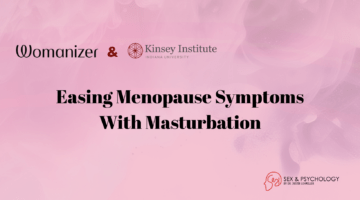How the Sexual Effects of Alcohol, Marijuana, and Molly Compare
October 21, 2019 by Justin Lehmiller
Alcohol, marijuana, and ecstasy/MDMA/Molly are among the most popular substances people use to enhance their sexual experiences. But when it comes to their effects, how similar or different are these drugs? A recent study published in the journal Psychology and Sexuality offers some insight.
Researchers surveyed 679 attendees at night clubs and dance festivals in New York City and asked them about their substance use, as well as the sexual effects that those substances had on them. All participants were between the ages of 18 and 25 and none were visibly intoxicated at the time of the survey. Participants were predominately White (60%) and heterosexual (85%). Here is a rundown of the main results:
· 87% reported that they had used at least one of these substances, while 39% had used all three.
· Most people who had used alcohol (67%) or ecstasy (61%) reported that the drug made them feel more sexually attractive. Far fewer marijuana users (25%) reported this effect.
· Similarly, most alcohol (72%) and ecstasy users (64%) reported that the drug made other people appear more sexually attractive; just 27% of marijuana users said the same.
· Compared to those who used marijuana, people who used alcohol or ecstasy said that these drugs made them more socially outgoing and increased their sexual desire.
· Ecstasy users were the most likely to report that this drug increased their body (75%) and genital sensitivity (64%). Less than half of marijuana and alcohol users reported the same—and alcohol users were the group most likely to report that use of that substance decreased their sensitivity to touch.
· Despite decreased physical sensitivity, alcohol users were the most likely (85%) to report having had a sexual encounter while using that substance. Interestingly, despite increased physical sensitivity, ecstasy users were the least likely (57%) to report a sexual encounter while using that substance. Marijuana users were in between (75%).
· Among those who had sexual encounters on a substance, ecstasy users (compared to alcohol and marijuana users) reported the strongest increase in sexual intensity, the longest sexual encounters, the most sexual enjoyment, and the longest and most intense orgasms. By contrast, alcohol users were the most likely to report that sex was less enjoyable, didn’t last as long as usual, and produced a less intense orgasm.
· Ecstasy (47%) and alcohol users (40%) reported the highest rates of encountering sexual difficulties (e.g., vaginal dryness, erectile problems), whereas marijuana users reported the lowest rate of problems (21%).
· Alcohol users (31%) were also the most likely to report regrets about sex while intoxicated; sexual regrets were less common among ecstasy (13%) and marijuana users (7%).
It’s important to note that this study is limited by the fact that only young adults in the New York club scene participated. As a result, the findings may not generalize to other populations. Also, these findings were based on self-reports and don’t take into account differences in dosage or other factors (e.g., which strain of marijuana was used, how the ecstasy/MDMA/Molly was consumed and whether it was cut with other substances, etc.).
More research is therefore needed; however, these results suggest that there is a distinct profile of sexual effects associated with each of these substances. Further, these drugs don’t necessarily seem to affect everyone the same way and some of them appear to produce paradoxical effects. For example, alcohol increases sexual desire and the odds of having sex, but simultaneously decreases genital sensitivity and is linked to sexual problems and regrets. Likewise, ecstasy increases sensitivity to touch and sexual desire, but is less likely to lead to sex and, when sex happens, people are actually more likely to experience sexual problems than they are with other substances.
In short, understanding the effects of these drugs on our sex lives is complex, to say the least.
Want to learn more about Sex and Psychology ? Click here for previous articles or follow the blog on Facebook (facebook.com/psychologyofsex), Twitter (@JustinLehmiller), or Reddit (reddit.com/r/psychologyofsex) to receive updates. You can also follow Dr. Lehmiller on YouTube and Instagram.
To learn more about this research, see: Palamar, J. J., Griffin-Tomas, M., Acosta, P., Ompad, D. C., & Cleland, C. M. (2018). A comparison of self-reported sexual effects of alcohol, marijuana, and ecstasy in a sample of young adult nightlife attendees. Psychology & Sexuality, 9(1), 54-68.
Image Credit: 123RF/lightfieldstudios
You Might Also Like:

Dr. Justin Lehmiller
Founder & Owner of Sex and PsychologyDr. Justin Lehmiller is a social psychologist and Research Fellow at The Kinsey Institute. He runs the Sex and Psychology blog and podcast and is author of the popular book Tell Me What You Want. Dr. Lehmiller is an award-winning educator, and a prolific researcher who has published more than 50 academic works.
Read full bio >


